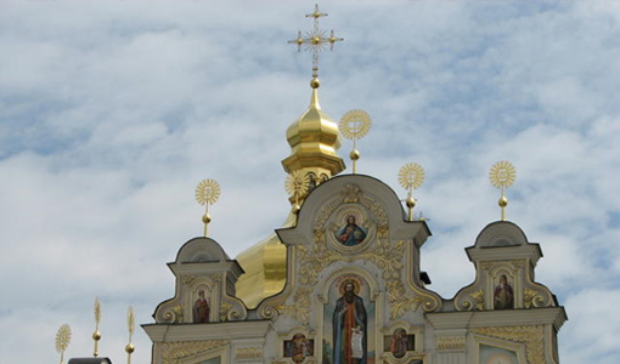Perspectives interviewed three Catholic Studies alumni who are pursuing or have earned Ph.D.s for their thoughts on how Catholic Studies has helped shape their educational plans and future careers.
Greg Murry Greg Murry graduated from the University of St. Thomas in 2003 with a double major in history and Catholic Studies. He holds a Master of Arts degree in history from Penn State University, where he is studying toward a Ph.D. in early modern European history.
Like many undergraduates, I entered college to obtain a degree that would just help me find a job; however, when I began reading some of the great masters of the liberal arts tradition, I realized that a more general search for wisdom was personally far more exciting. As I seek more advanced degrees, this interest has only continued.
Catholic Studies has assisted me on this journey in many ways. First and most importantly, it helped me to lay hold of a number of immutable truths that ground my life both inside and outside of the academy. Second, Catholic Studies encouraged me to approach problems from a multidisciplinary perspective. Third, Catholic Studies consistently urged me to seek the roots of disagreement in the variant first principles and viewpoints that scholars bring to their analysis of objective reality. Since my time at St. Thomas, I have found that I am not content merely to disagree with another person’s viewpoint without understanding why I disagree. This attention to the worldview of others has been particularly useful to my work as a historian, helping me to develop a greater sympathy for the motivations, choices and behavior of the many people I study.
After finishing my degree I hope to publish my dissertation, which will study the relationship between religious politics and political legitimacy in mid-16th-century Florence. I also hope to teach history as a college professor, helping to make history come alive for students in the same way that it is alive for me.
Jennifer Kreis Clark Jennifer Kreis Clark is a 1997 alumna of St. Thomas with a double major in Catholic Studies and English, and minors in philosophy and history. She received both her Master of Arts (1999) and Doctor of Philosophy (2005) degrees from Boston College in systematic theology.
After graduating from St. Thomas, I knew I was interested in continuing my education. The formation I’d received through the Catholic Studies program had raised many questions that I felt needed further study. I wasn’t even sure at the time what those questions really were, but after a few years I began to realize that my interests centered on the nature of theology and how it can be said that we have knowledge of God. My professors at St. Thomas, especially those in Catholic Studies, encouraged me to consider graduate work. I told myself that I’d try it for a year, and after that time, if I still liked it more than anything else and felt I had more questions that needed further study, I’d keep going. I suppose I shouldn’t be surprised that I always had more questions, since the object of the divine science is, of course, God! My dissertation, titled “Understanding and Theology According to St. Gregory of Nyssa,” was an attempt at answering some of those questions.
“The formation I’d received through the Catholic Studies program had raised many questions that I felt needed further study.” — Jennifer Kreis Clark
My education in the then fledgling Catholic Studies program gave me a love of interdisciplinary discussion. It greatly influenced the way I thought about and approached my studies. Among the professors and students I found a vibrant intellectual life wedded to the life of faith. This was very inspiring to me for it provided concrete examples of integrated scholarship, wisdom and holiness.
My husband, Patrick, and I live in South Bend, Ind., while he pursues his Ph.D. in moral theology from the University of Notre Dame. I am staying at home raising our two children: Anastasia, who is 2-1/2, and Symeon, who is 1. I am also working on submitting articles to various journals, one of which is a chapter taken from my dissertation.
Jordan Watts Jordan Watts graduated from the University of St. Thomas in 2000 with a double major in operations management and Catholic Studies. He holds a Philosophical Baccalaureate from the Angelicum in Rome and a Philosophical Licentiate (the ecclesial equivalent to a Master of Arts degree) from The Catholic University of America, where he is currently pursuing a Ph.D. in philosophy.
Though I was not a philosophy major at St. Thomas, I was interested in philosophical questions such as: What is the good life? and What is being? I realized that I wanted to investigate the answers. As a student trying to take my faith seriously, I also was impressed by the emphasis that the Church put on rational inquiry and the optimism she had for what it can do. For example, Fides et Ratio asks philosophers to “trust in the power of human reason and not set themselves goals that are too modest,” and Benedict XVI’s recent Regensburg Address highlighted the importance of philosophy for Christianity.
I became interested in pursuing postgraduate studies in philosophy because of my Catholic Studies classes. I was especially interested in the courses that were cross-listed with philosophy, such as Dr. Coulter’s Christian Mysteries and Dr. Maloney’s Woman and Man. These classes addressed important questions about what it is to be a human being in a context that not only held the faith in high regard but also dealt with their respective topics through natural reason. My degree in Catholic Studies was the foundation and impetus for my pursuit of an advanced degree. I hope that I may pass on this love of philosophy by eventually teaching it at a college or university.






